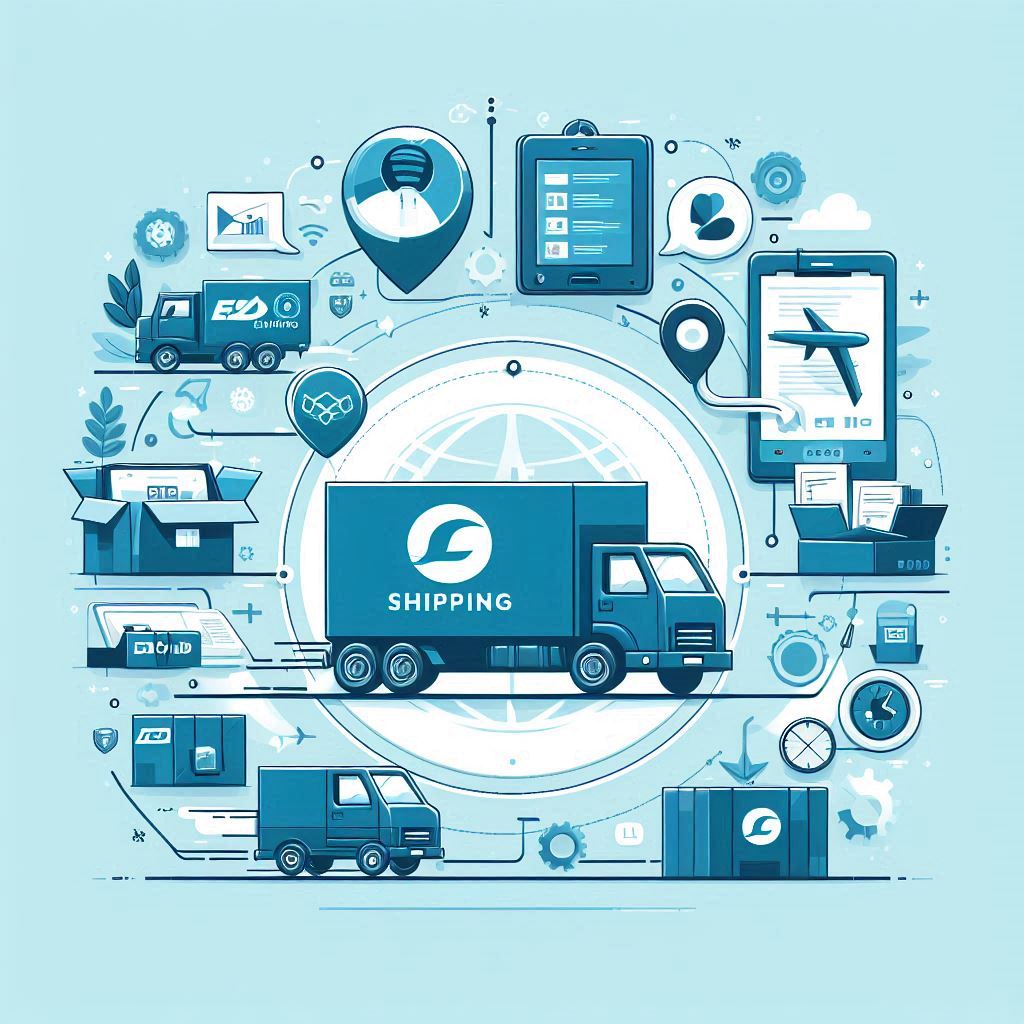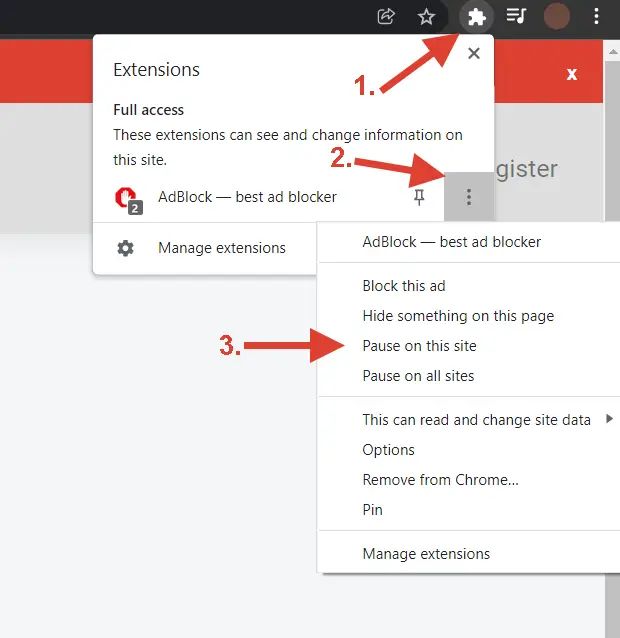As an Ecwid store owner, you’ve mastered the art of creating great products and building a beautiful online storefront. But as your business grows, another critical element comes into focus: logistics. How you get your products from your warehouse to your customer’s doorstep is just as important as the product itself. Inefficient shipping can lead to delays, high costs, and unhappy customers, while a streamlined process can become a powerful competitive advantage.
This is where the power of integrations comes in. By connecting your Ecwid store to specialized shipping and fulfillment platforms, you can automate workflows, reduce errors, and scale your operations effortlessly. This guide will walk you through everything you need to know about Ecwid shipping integrations, from understanding third-party logistics to choosing the right partners to supercharge your fulfillment process.
Table of Contents
- Understanding Ecwid’s Native Shipping Capabilities
- Scaling Up: What is an Ecwid 3PL?
- How Fulfillment Integrations Work with Ecwid
- Choosing the Right Partner: What to Look for in Fulfillment Services for Ecwid
- Advanced Shipping Management: Exploring Multi-Carrier Software
- The Tangible Benefits of a Streamlined Fulfillment Process
- Frequently Asked Questions
Understanding Ecwid’s Native Shipping Capabilities
Before diving into advanced integrations, it’s important to recognize what Ecwid offers right out of the box. The platform provides a robust set of native tools that work perfectly for many new and small businesses. These include:
- Real-Time Carrier Rates: Ecwid can connect directly with major carriers like USPS, UPS, FedEx, and Canada Post to pull accurate, real-time shipping quotes for customers at checkout. This ensures you’re not under or over-charging for shipping.
- Manual Shipping Methods: You have complete control to set up your own rules, such as flat-rate shipping per order, tiered rates based on order value or weight, and, of course, free shipping.
- Local Delivery and Pickup: For businesses serving a local community, Ecwid makes it simple to offer in-store pickup or local delivery options, complete with date and time pickers.
These tools are a fantastic starting point. However, as your order volume increases, the manual tasks of picking, packing, and shipping every single order can quickly become a bottleneck. That’s when it’s time to explore a more automated solution.
Scaling Up: What is an Ecwid 3PL?
When you start to feel overwhelmed by packing boxes, you might begin looking for an ecwid 3pl solution. 3PL stands for third-party logistics, which is a service that allows you to outsource your operational logistics, from warehousing to delivery. In essence, an ecwid third party logistics partner handles all the physical aspects of getting your products to your customers.
A 3pl for ecwid provider typically manages:
- Warehousing: They store your inventory in their secure fulfillment centers.
- Inventory Management: They track your stock levels and provide data on what’s available.
- Picking and Packing: When an order comes in, their team physically picks the items from the shelves and packs them for shipment.
- Shipping: They manage relationships with carriers, print labels, and hand off the packages for delivery.
By outsourcing these tasks, you free up invaluable time to focus on marketing, product development, and customer service—the core activities that grow your business.
How Fulfillment Integrations Work with Ecwid
The magic that connects your online store to a logistics partner is the integration itself. A robust ecwid shipping integration creates a seamless, automated communication channel between your Ecwid dashboard and your fulfillment provider’s system.
The process is remarkably simple from your perspective:
- A customer places an order on your Ecwid store.
- The ecwid order fulfillment integration automatically and securely sends the order details (products, customer address, shipping method) to your 3PL partner.
- The 3PL’s warehouse team receives the order, picks the items, packs the box, and prints the shipping label.
- Once the order is shipped, the 3PL’s system sends the tracking number and fulfillment status back to Ecwid.
- Ecwid automatically updates the order status and notifies your customer that their package is on the way.
This entire workflow happens in the background without any manual intervention required from you. This level of automation is the cornerstone of efficient ecwid fulfillment and is essential for any brand looking to scale. Proper ecwid order fulfillment is a critical component of customer satisfaction and retention.
Choosing the Right Partner: What to Look for in Fulfillment Services for Ecwid
With a growing number of companies offering logistics services, finding the right fit can feel daunting. The key is to look for a partner whose services and technology align with your business needs. When evaluating potential partners, you should prioritize finding the best ecwid fulfillment integration for your specific product type and order volume.
Here are some key criteria to consider when searching for the top fulfillment services for ecwid:
- Seamless Integration: The provider must have a proven, reliable integration with Ecwid. Ask for case studies or documentation on how their system connects. A buggy or unreliable connection defeats the purpose of automation.
- Warehouse Location(s): Look for a 3pl warehouse for ecwid that is strategically located to reduce shipping times and costs for the majority of your customers. Some providers have multiple warehouses, allowing for distributed inventory and 2-day shipping nationwide.
- Pricing Structure: Understand the entire fee structure, which typically includes receiving fees (for when they accept your inventory), storage fees (per pallet or bin), and pick-and-pack fees (per order or per item). A transparent ecwid 3pl service will provide a clear and understandable pricing sheet.
- Scalability: The partner should be able to handle your current order volume and grow with you. Ask about their capacity and how they handle seasonal peaks. The goal of using order fulfillment services for ecwid is to support your growth, not hinder it.
- Specialization: If you sell fragile items, food products, or items requiring special assembly, ensure the ecwid 3pl provider has experience in that area.
Ultimately, the goal is to find not just a service, but a true partner. The best fulfillment services for ecwid will act as an extension of your team. Whether you’re looking for an ecwid 3pl fulfillment solution or the top ecwid fulfillment warehouse, due diligence is crucial for a successful long-term relationship. Many businesses consider these providers to be the most vital ecwid fulfillment services they use.
Advanced Shipping Management: Exploring Multi-Carrier Software
Beyond full-service 3PLs, another powerful type of integration involves multi-carrier shipping software. Platforms like ShipStation, Shippo, and Easyship serve as a central hub for managing your shipping process, even if you’re still fulfilling orders in-house.
The most popular shipping integration for ecwid in this category is arguably the shipstation ecwid connection. An ecwid shipstation integration allows you to:
- Import all your Ecwid orders into one dashboard.
- Compare real-time rates from dozens of carriers (USPS, UPS, FedEx, DHL, and more) for every single order.
- Batch-print hundreds of shipping labels with a few clicks, saving an immense amount of time.
- Set up automation rules to automatically choose the cheapest carrier, add insurance, or assign a specific package type based on the product.
This type of shipping fulfillment integration for ecwid is perfect for businesses that have the physical space to manage their own inventory but want to professionalize and speed up the label generation and carrier selection process. Finding the top ecwid shipping integration for your workflow can dramatically improve your efficiency and lower your shipping costs.
The Tangible Benefits of a Streamlined Fulfillment Process
Integrating your Ecwid store with a 3PL or a shipping management platform isn’t just about convenience; it delivers real, measurable results for your business.
- Save Time and Money: By automating manual tasks and leveraging a 3PL’s discounted shipping rates, you significantly cut down on both labor hours and operational costs.
- Reduce Errors: Automated order processing eliminates the human errors that can occur with manual data entry, such as typos in shipping addresses.
- Increase Customer Satisfaction: Faster processing times and reliable, professional packing lead to quicker deliveries and a better unboxing experience for your customers.
- Focus on Growth: With logistics handled, you can redirect your energy and resources toward strategic initiatives like marketing, customer acquisition, and expanding your product line.
Ultimately, a well-executed fulfillment strategy is the foundation upon which a scalable e-commerce business is built.
Frequently Asked Questions
What is the difference between a shipping carrier and an Ecwid 3PL?
A shipping carrier (like USPS or FedEx) is the company that physically transports a package from one point to another. An Ecwid 3PL is a full-service partner that stores your inventory, picks and packs your orders, and then hands the packages off to a shipping carrier for final delivery.
How does an Ecwid 3PL integration work technically?
Most modern integrations use an API (Application Programming Interface). This is a secure communication protocol that allows your Ecwid store and the 3PL’s software to "talk" to each other in real-time. When an order is created in Ecwid, it triggers an API call that sends the order data directly to the fulfillment warehouse’s system.
Can I use a tool like ShipStation and an Ecwid 3PL at the same time?
Generally, you would use one or the other. If you use a 3PL, they handle all shipping and label generation, making ShipStation redundant for that part of the process. You would use ShipStation if you are fulfilling orders yourself (from your home, office, or private warehouse) and want a more efficient way to manage carriers and print labels.
Is there a minimum order volume required to use an Ecwid 3PL?
This varies by provider. Some 3PLs are designed for high-volume enterprises and may have monthly order minimums. However, many modern 3PLs are built to serve startups and growing businesses and have no, or very low, minimum requirements, allowing you to start small and scale up. It’s important to ask any potential partner about their minimums upfront.


